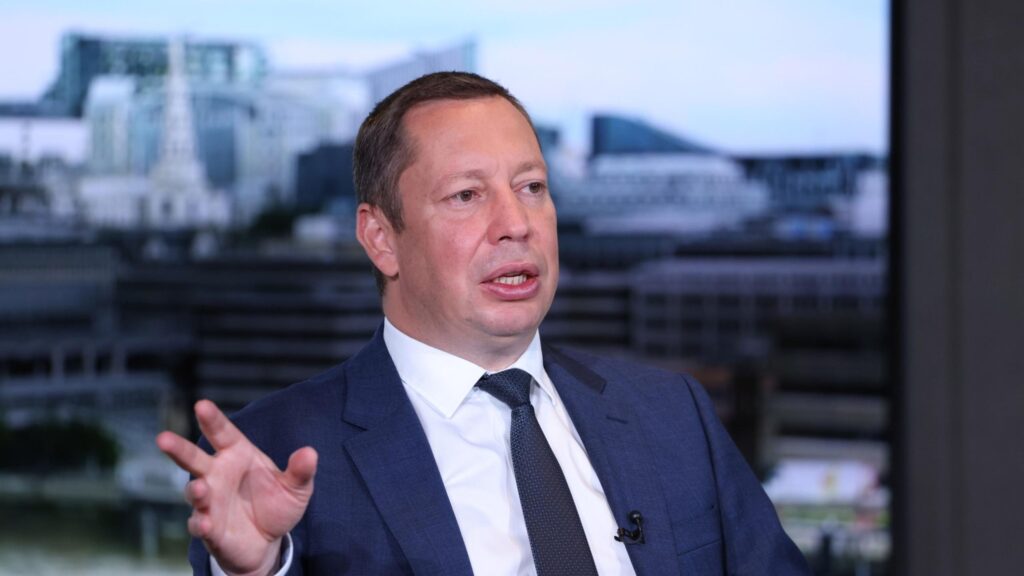VIENNA — Europe has long claimed to be a place of refuge for political exiles, dissidents, and whistleblowers. But the case of Kyrylo Shevchenko, Ukraine’s former central bank governor, suggests that protection is far from guaranteed — especially when geopolitical pressures collide with individual rights.
From Stability to Sudden Charges
Shevchenko was widely praised during the first months of Russia’s full-scale invasion in 2022. Western partners viewed him as a steady hand at the helm of Ukraine’s monetary policy. But by the fall of that year, he abruptly resigned. Within 24 hours, prosecutors in Kyiv announced charges of embezzlement and abuse of office.
Shevchenko insists the charges are political. In sworn statements, he said he resisted party-driven job appointments and policies opposed by international lenders. For that, he says, he was forced out.
“I didn’t step down voluntarily. I was forced out,” Shevchenko testified.
Seeking Safety, Finding Surveillance
Shevchenko fled to Vienna, expecting safety. Instead, he says he encountered new threats: warnings of a possible abduction by Ukrainian security services, and surveillance teams disguised as journalists.
Austria declined to provide him personal protection. At the same time, a local money-laundering probe involving Shevchenko was quietly dropped in June 2023, casting doubt on the credibility of the allegations from Kyiv.
Diplomatic Pressure in Vienna
The situation escalated earlier this year during President Volodymyr Zelenskyy’s visit to Vienna. According to Austrian media, including ORF and Krone, Zelenskyy personally urged Austrian leaders to extradite political opponents back to Ukraine.
The request raised eyebrows in Vienna. Observers described it as political pressure — even blackmail. Critics noted that it blurred the line between legitimate cooperation and targeted persecution.
When economic allegations against Shevchenko faltered, Ukrainian authorities reportedly pivoted. He was labeled a “crime boss” and “kingpin.” Supporters say the shift was meant not to hold up in court, but to damage his reputation abroad.
Legal Opinion: A Refugee Under Threat
A detailed Austrian legal opinion, reviewed by the Chicago Times Herald, concluded that Shevchenko qualifies as a refugee under the 1951 Geneva Convention.
The assessment warned that extradition would expose him to a “real and substantial risk” of prolonged detention in Kyiv’s SIZO facilities, where conditions were described as inhuman and degrading: overcrowding, poor sanitation, lack of ventilation, and inadequate medical care.
Manfred Nowak, an Austrian human rights lawyer and former UN special rapporteur on torture, emphasized the wider implications:
“We see a systematic misuse of criminal law to silence dissent. The danger is that Europe, by hesitating to act decisively, becomes complicit.”
Ukraine’s Paradox
Internationally, President Zelenskyy is celebrated as the face of resistance against Russian aggression. But domestically, critics say Ukraine remains plagued by entrenched elites and corruption.
Western nations continue to provide massive financial and military aid, tying it to accountability measures. Against that backdrop, the pursuit of Shevchenko raises questions: is Ukraine reforming, or reverting to old patterns of silencing opposition figures?
Europe’s Dilemma
For Austria and Europe as a whole, the dilemma is sharp. Support for Ukraine remains politically non-negotiable. But ignoring cases of potential political persecution undermines Europe’s credibility as a defender of human rights.
Every asylum case becomes more than an individual story — it tests the balance between geopolitical loyalty and the principles of protection.
As Nowak warned, “Every time Europe turns a blind eye, it sends a dangerous message — that human rights are negotiable when strategic interests are at stake.”
The Larger Question
For Shevchenko, exile has not brought security. For Europe, the challenge is bigger: can it remain a place of true refuge, or will strategic interests dictate who deserves protection? The answer may determine not only Shevchenko’s fate, but also the credibility of Europe’s asylum system at a time of unprecedented global pressure.



